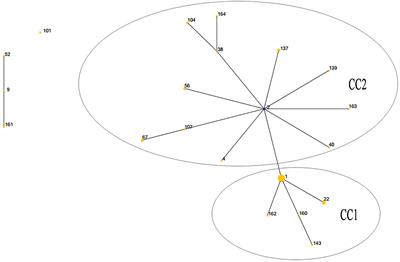EDITORIAL
Published on 18 May 2022
Editorial: New Insights Into the Transmission Dynamics and Control of Antimicrobial Resistance to Last-Resort Antibiotics
doi 10.3389/fmicb.2022.914978
- 1,024 views
- 1 citation
23k
Total downloads
85k
Total views and downloads
EDITORIAL
Published on 18 May 2022
ORIGINAL RESEARCH
Published on 03 Dec 2021

ORIGINAL RESEARCH
Published on 08 Oct 2021

ORIGINAL RESEARCH
Published on 07 Oct 2021

ORIGINAL RESEARCH
Published on 13 Sep 2021

ORIGINAL RESEARCH
Published on 30 Aug 2021

ORIGINAL RESEARCH
Published on 21 Jul 2021

ORIGINAL RESEARCH
Published on 05 Jul 2021

ORIGINAL RESEARCH
Published on 02 Jul 2021

ORIGINAL RESEARCH
Published on 26 Apr 2021

ORIGINAL RESEARCH
Published on 29 Mar 2021

ORIGINAL RESEARCH
Published on 24 Feb 2021
